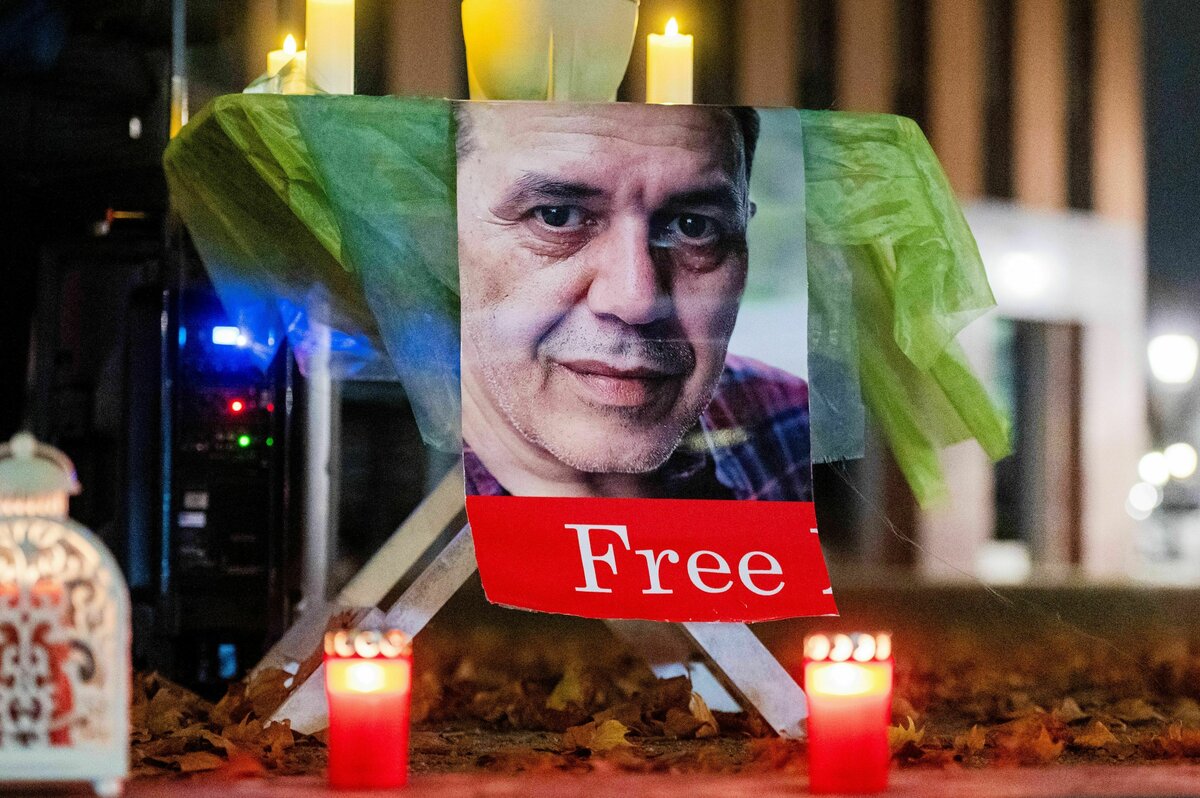After the execution of the German-Iranian citizen Jamshid Sharmahd by the regime in Tehran on Monday, Foreign Minister Annalena Baerbock was criticized for not having done enough to save him. Should Germany now put more pressure on Iran and the mullahs?
And
According to Annalena Baerbock, the murder of German citizen Jamshid Sharmahd is said to have “serious consequences”. The German embassy in Tehran has “tireless“ used for Sharmahd. This can actually only be read as an admission of their failure. A government that cannot protect its citizens from terror or a regime of terror does not a good job – and certainly not a “feminist” foreign policy, as the Foreign Minister promised when she took office. Feminism and the regime in Tehran – they go together about as well as peace demonstrations and Putin. So what will the “serious consequences” look like? A serious conversation with the ambassador?
Germany is Iran’s largest trading partner within Europe. Why still?
Sure, the story sounds nice: change through rapprochement, not letting the thread of conversation break, not letting people down. But: Which terrorist regime has ever been overthrown or even weakened through appeasement or economic ties?
It didn’t work with Putin and it certainly won’t work with the mullahs. Pressure only creates counter-pressure, i.e. whoever provokes such regimes only encourages them to use more violence? That may be true in the short term, but in the long term reassurance and reaching out will only strengthen them.
Demand human rights – everywhere
Baerbock – together with Economics Minister Robert Habeck – would now have to go into confrontation and exert economic pressure. Because anyone who insists on respecting human rights on the international stage must demand them everywhere. Consistently. In the case of Iran, this applies not least to all those who want peace in the Middle East. With a fall of the Islamic regime in Tehran, that would be closer than many dare to dream today. Because both Hezbollah and Hamas and Houthis are being armed by whom? Exactly: from Tehran.
Ariane Lemme
No
The execution of the German-Iranian entrepreneur Jamshid Sharmahd is a state crime. Sentenced to death after a show trial, he has now been executed. The fact that he was kidnapped to Iran by the Iranian secret service during a stopover in Dubai was a political scandal. Foreign Minister Baerbock is now talking about “murder” and has announced serious consequences. But what’s the point of that now?
German-Iranian relations are already tense. It was only in June that Interior Minister Faeser had the “Blue Mosque” in Hamburg closed. Iran responded by closing the German language institute in Tehran. At the European level, Germany is also campaigning for the Revolutionary Guards to be classified as a terrorist organization and for sanctions against Tehran to be strengthened. Diplomats had warned that this could complicate negotiations over imprisoned Germans in Iran and diplomacy as a whole. But Germany wants to show toughness, that’s popular. Unfortunately, this leads to Iran also showing toughness.
How about quiet diplomacy?
The wars in the Middle East continue to inflame tensions. In April Israel bombed an annex of the Iranian embassy in Damascus. 13 people were killed, including seven members of the Revolutionary Guard. At the end of July, the then Hamas chief Ismael Haniyeh was killed in Tehran, and in the attack on Hezbollah’s headquarters in southern Beirut at the end of September, its leader Hassan Nasrallah and an Iranian general were killed, among others. In both cases, Iran responded with missiles against Israel, and Israel responded with attacks on Iran. This has been going on back and forth for months, and Germany is firmly on Israel’s side.
Instead of flexing your muscles in a public way again, it would be better to try de-escalation and actually quiet diplomacy again. There are even more prisoners in Iranian prisons who could possibly be helped by this.
Daniel Bax


